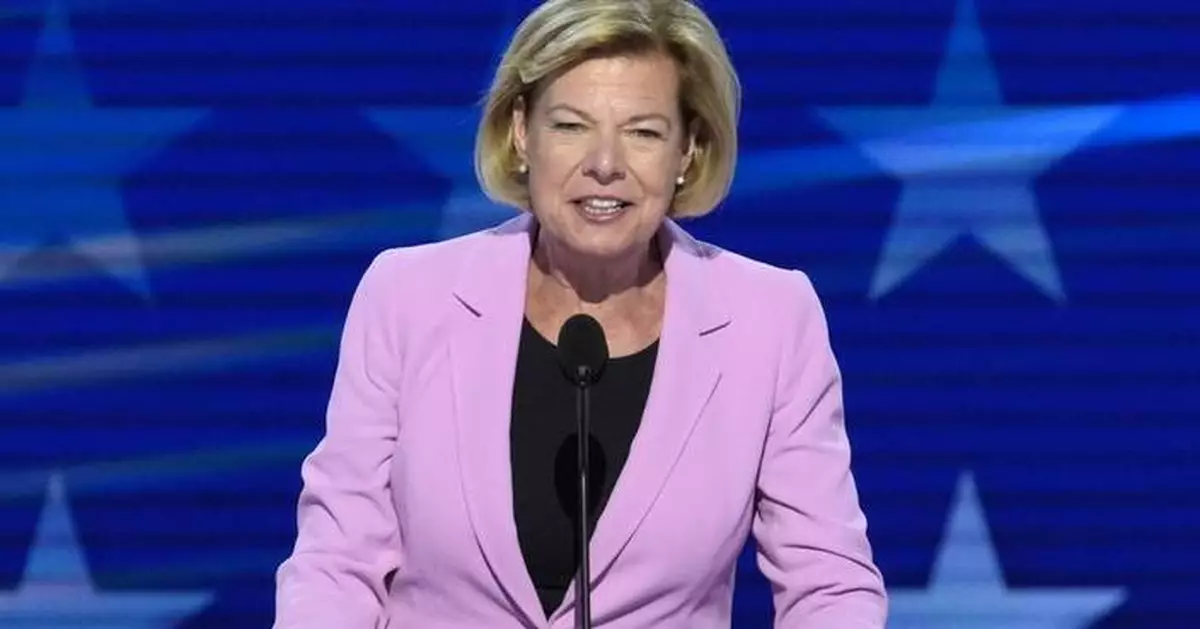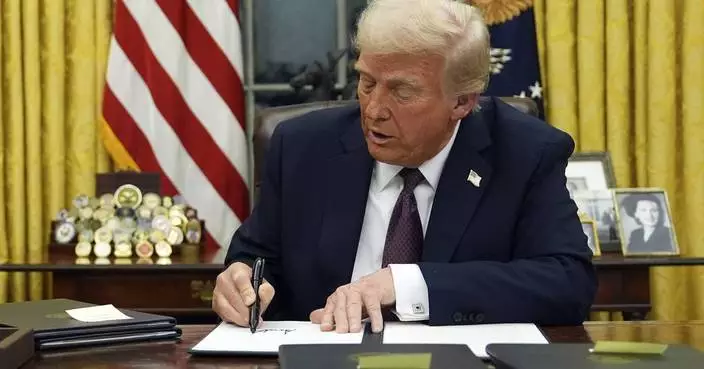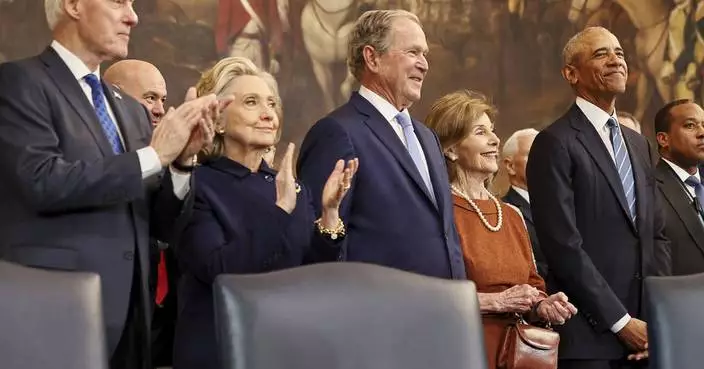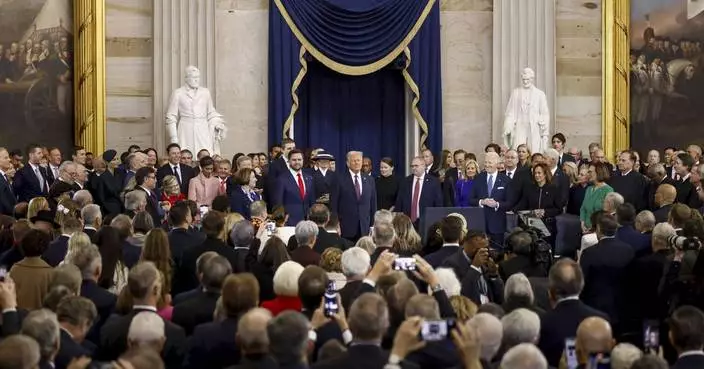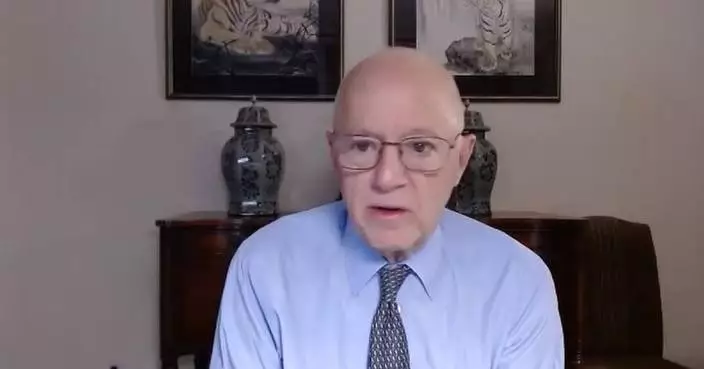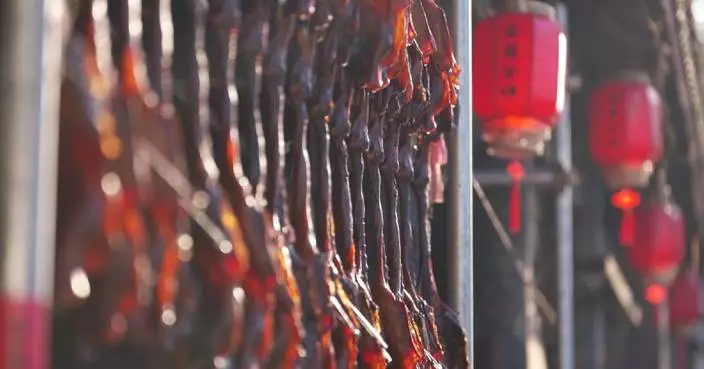MADISON, WIs. (AP) — The mayor of Waukesha on Wednesday condemned a campaign ad run by a Republican independent group that links Democratic U.S. Sen. Tammy Baldwin with the killings of six people at a 2021 Christmas parade in that Wisconsin city.
Waukesha Mayor Shawn Reilly called the ad a “pitiful political tool” that “doesn’t just hurt the families that had members that were killed, or those that were injured or those that even saw it, it hurts the whole entire community.”
Baldwin faces Republican Eric Hovde in one of the most hotly contested Senate races in the country this year. The race is crucial for Democrats to win to maintain majority control of the Senate.
The ad, which began airing across Wisconsin last week, was paid for by One Nation, a super PAC aligned with Republican Senate Majority Leader Mitch McConnell.
“This issue ad focused on Senator Baldwin’s vote against increased funding for pretrial detention of violent criminals and included a call-to-action at the end,” said One Nation spokesperson Torunn Sinclair. “It’s not political.”
She said the ad stopped running on Monday. It remained viewable online on Wednesday.
Reilly said in a telephone interview that “our pain and our suffering from the 2021 Waukesha Christmas parade is once again being used by unprincipled people to drive votes.”
Reilly referred to a joint statement issued by Baldwin and Republican U.S. Sen. Ron Johnson shortly after the parade killings in 2021 urging no one to use it for political gain.
“I would hope that Eric Hovde would also support what Sen. Johnson said,” Reilly said. “No politician should allow the use of the Waukesha Christmas parade attack and its impact on our community to drive votes by creating fear and disgust to purposely create divisions.”
Hovde’s campaign spokesperson, Ben Voelkel, did not immediately return an email seeking comment.
Baldwin’s campaign also spoke out against the ad.
“Using the attack for political purposes is not only wrong, it is deeply hurtful to a community still recovering from the tragedy of that day,” her campaign spokesman Andrew Mamo said.
Reilly used to be a Republican but disavowed the party after the Jan. 6, 2021, insurrection at the U.S. Capitol. He said he is now an independent who supports Baldwin in the Senate race.
The ad shows footage from the Waukesha Christmas parade in November 2021 after Darrell Brooks Jr. drove his SUV through the parade route, killing six people. Brooks was sentenced to six life consecutive sentences without parole.
“It never should have happened,” the narrator of the ad says over the sound of sirens and video images of people running along the parade route and people hovering over those struck by the SUV. The narrator adds that Brooks was released on $1,000 bail just days earlier after trying to run over his girlfriend with the same car.
The ad then shows an image of Baldwin on the Senate floor, with the narrator saying she voted against funding for pretrial detention of violent criminals. The ad cites an Aug. 7, 2022, vote, which came nearly a year after the parade killings.
The narrator says the vote made it “easier for criminals like Darrell Brooks to terrorize our communities." The ad ends with side-by-side images of Baldwin on the Senate floor and Brooks in an orange prison outfit.
Baldwin had nothing to do with the setting of Brooks’ bail before the Christmas parade.
The $1,000 bail was the amount requested by the Milwaukee County district attorney’s office. District Attorney John Chisholm acknowledged later that the $1,000 bail request from an assistant prosecutor in his office was far too low.
The judge granted the bail request, which Brooks posted, just days before he drove through the Christmas parade, killing six.
Wisconsin voters approved a constitutional amendment in 2023, pushed by Republicans after the parade killings, that makes it easier for judges to post higher bail amounts.
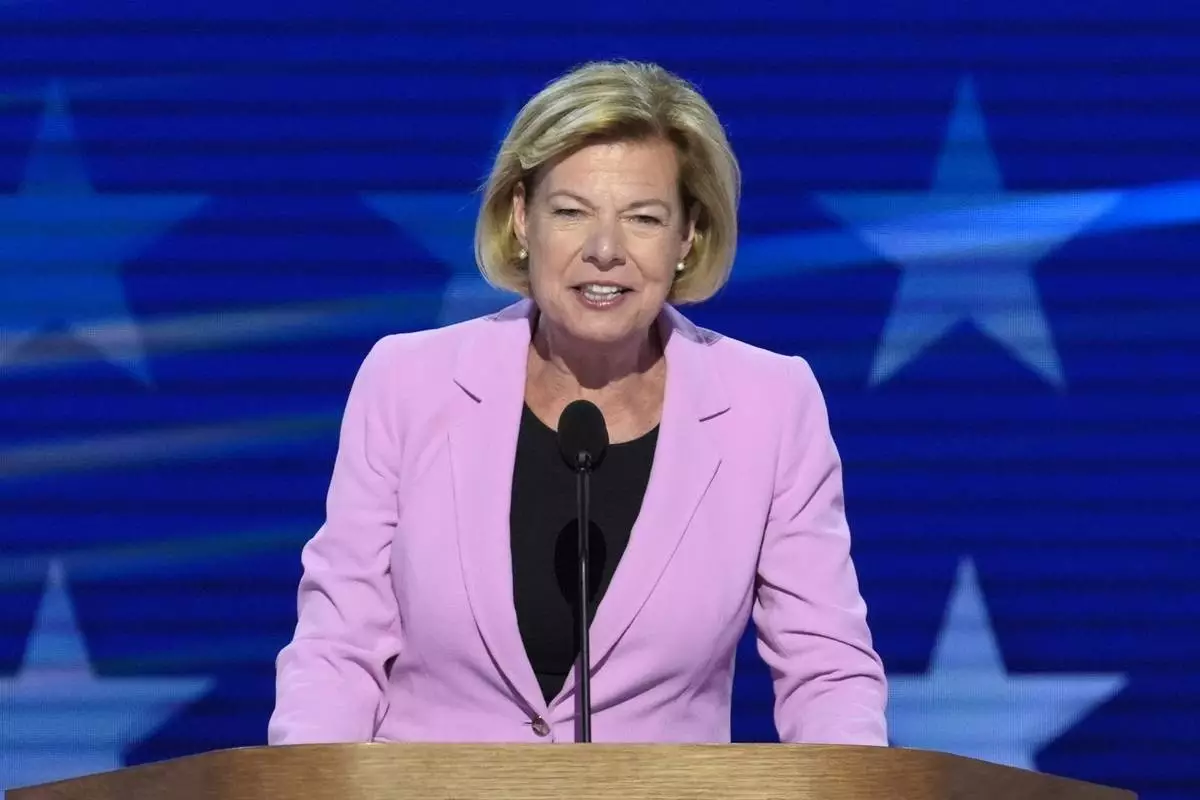
FILE - Sen. Tammy Baldwin, D-Wis., speaks during the Democratic National Convention Thursday, Aug. 22, 2024, in Chicago. (AP Photo/J. Scott Applewhite, File)
President Donald Trump moved to end a decades-old immigration policy known as birthright citizenship when he ordered the cancellation of the constitutional guarantee that U.S.-born children are citizens regardless of their parents’ status.
Trump's roughly 700-word executive order, issued late Monday, amounts to a fulfillment of something he's talked about during the presidential campaign. But whether it succeeds is far from certain as attorneys general in 18 states and two cities challenged the order in court on Tuesday, seeking to block the president.
Here's a closer look at birthright citizenship, Trump's executive order and reaction to it:
Birthright citizenship means anyone born in the U.S. is a citizen, regardless of their parents' immigration status. People, for instance, in the United States on a tourist or other visa or in the country illegally can become the parents of a citizen if their child is born here.
It's been in place for decades and enshrined in the 14th Amendment to the Constitution, supporters say. But Trump and allies dispute the reading of the amendment and say there need to be tougher standards on becoming a citizen.
The order questions that the 14th Amendment extends citizenship automatically to anyone born in the United States.
The 14th Amendment was born in the aftermath of the Civil War and ratified in 1868. It says: “All persons born or naturalized in the United States and subject to the jurisdiction thereof, are citizens of the United States and of the State wherein they reside.”
Trump's order excludes the following people from automatic citizenship: those whose mothers were not legally in the United States and whose fathers were not U.S. citizens or lawful permanent residents; people whose mothers were in the country legally but on a temporary basis and whose fathers were not citizens or legal permanent residents.
It goes on to bar federal agencies from recognizing the citizenship of people in those categories. It takes effect 30 days from Tuesday, on Feb. 19.
The 14th Amendment did not always guarantee birthright citizenship to all U.S.-born people. Congress did not authorize citizenship for all Native Americans born in the United States, for instance, until 1924.
In 1898 an important birthright citizenship case unfolded in the U.S. Supreme Court. The court held that Wong Kim Ark, who was born in San Francisco to Chinese immigrants, was a U.S. citizen because he was born in the country. After a trip abroad, he had faced denied reentry by the federal government on the grounds that he wasn't a citizen under the Chinese Exclusion Act.
But some advocates of immigration restrictions have argued that while the case clearly applied to children born to parents who are both legal immigrants, it’s less clear whether it applies to children born to parents without legal status.
Eighteen states, plus the District of Columbia and San Francisco sued in federal court to block Trump's order.
New Jersey Democratic Attorney General Matt Platkin said Tuesday the president cannot undo a right written into the Constitution with a stroke of his pen.
“Presidents have broad power but they are not kings,” Platkin said.
Not long after Trump signed the order, immigrant rights groups filed suit to stop it.
Chapters of the American Civil Liberties Union in New Hampshire, Maine and Massachusetts along with other immigrant rights advocates filed a suit in New Hampshire federal court.
The suit asks the court to find the order to be unconstitutional. It highlights the case of a woman identified as “Carmen," who is pregnant but is not a citizen. The lawsuit says she has lived in the United States for more than 15 years and has a pending visa application that could lead to permanent status. She has no other immigration status, and the father of her expected child has no immigration status either, the suit says.
“Stripping children of the ‘priceless treasure’ of citizenship is a grave injury,” the suit said. "It denies them the full membership in U.S. society to which they are entitled."
In addition to New Jersey and the two cities, California, Massachusetts, Colorado, Connecticut, Delaware, Hawaii, Maine, Maryland, Michigan, Minnesota, Nevada, New Mexico, New York, North Carolina, Rhode Island, Vermont, and Wisconsin joined the lawsuit to stop the order.
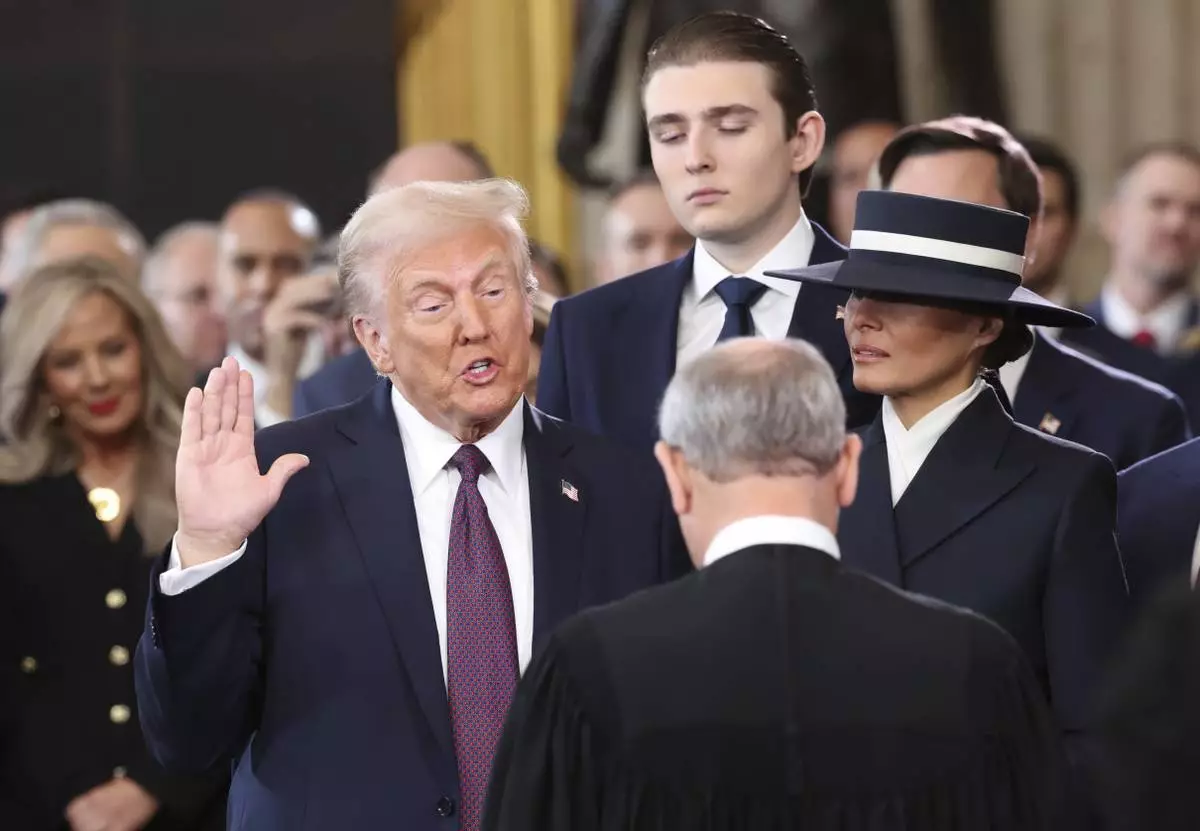
President-elect Donald Trump, from left, takes the oath of office as Barron Trump and Melania Trump watch at the 60th Presidential Inauguration in the Rotunda of the U.S. Capitol in Washington, Monday, Jan. 20, 2025. (Kevin Lamarque/Pool Photo via AP)
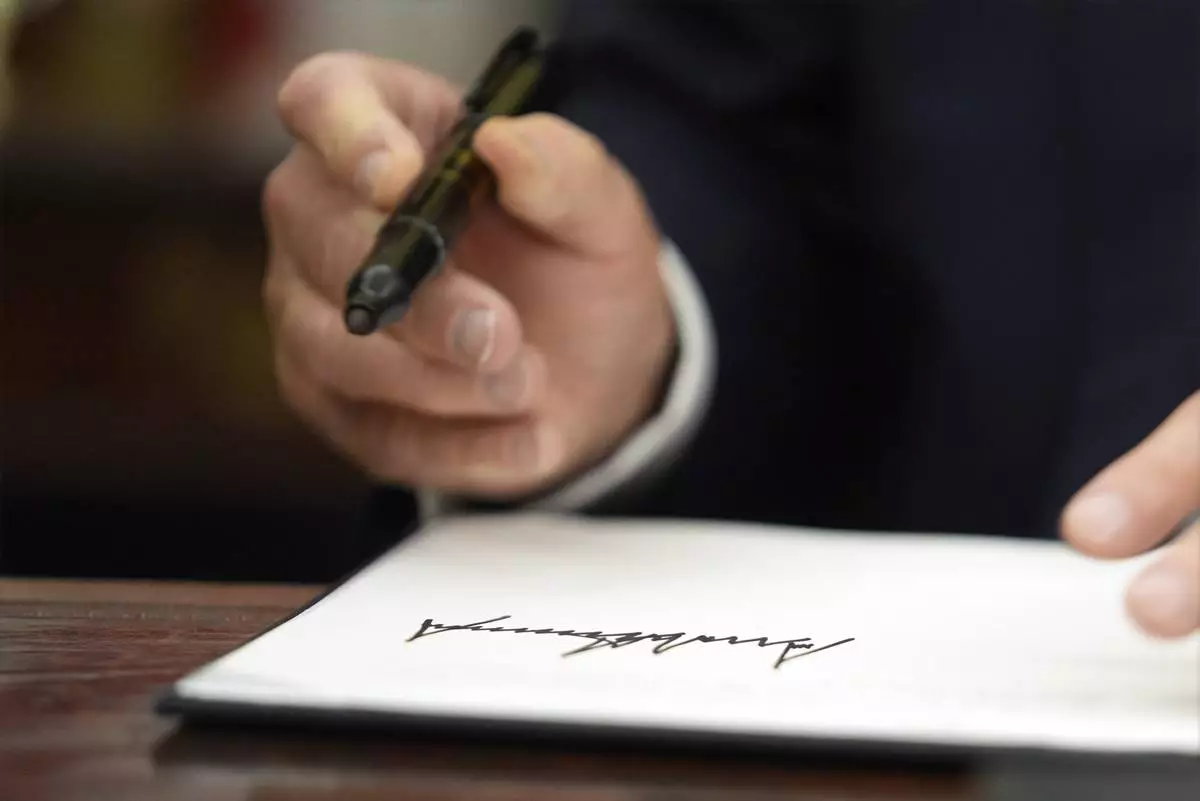
President Donald Trump signs executive orders in the Oval Office of the White House, Monday, Jan. 20, 2025, in Washington. (AP Photo/Evan Vucci)
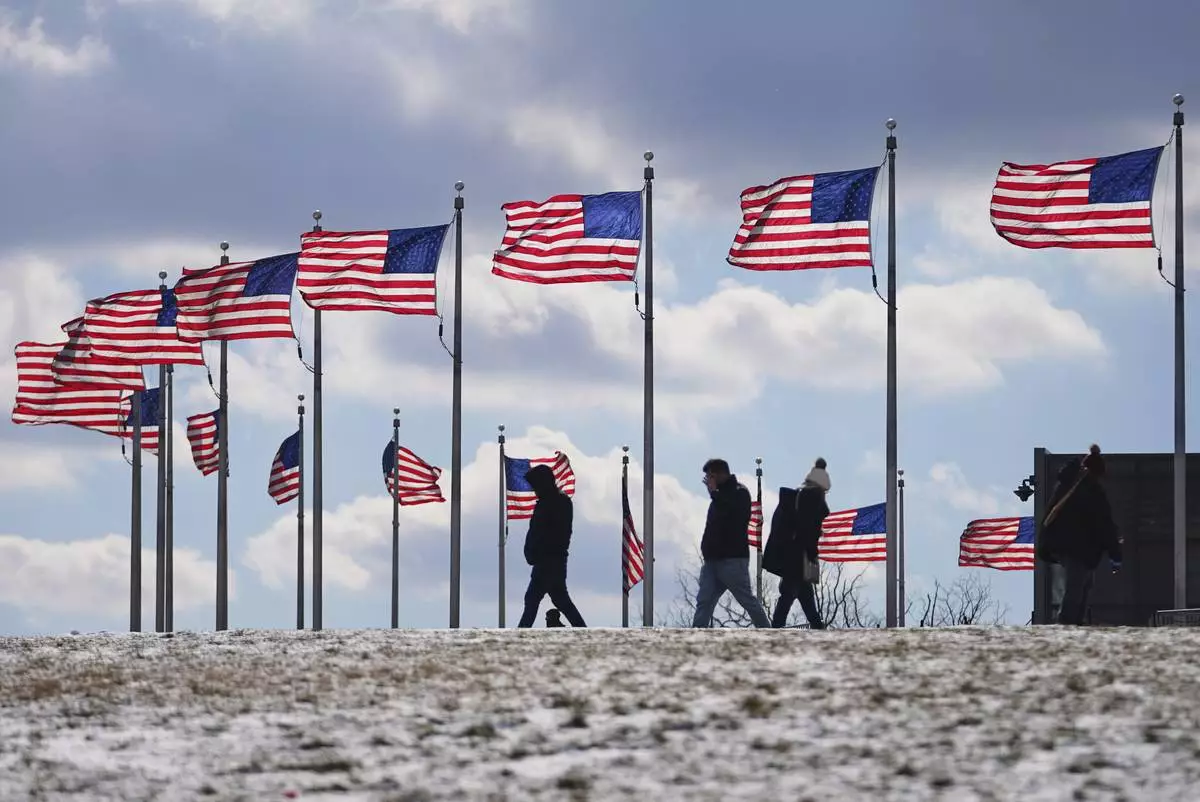
U.S. flags around the Washington Monument are at full staff during the 60th Presidential Inauguration, Monday, Jan. 20, 2025, in Washington. Flags are supposed to fly at half-staff through the end of January out of respect for former President Jimmy Carter, who died Dec. 29, 2024. (AP Photo/Julio Cortez)

A young man reacts to information on how to prepare for the upcoming changes to undocumented families living in the U.S., Sunday, Jan. 19, 2025, in Miami. (AP Photo/Marta Lavandier)
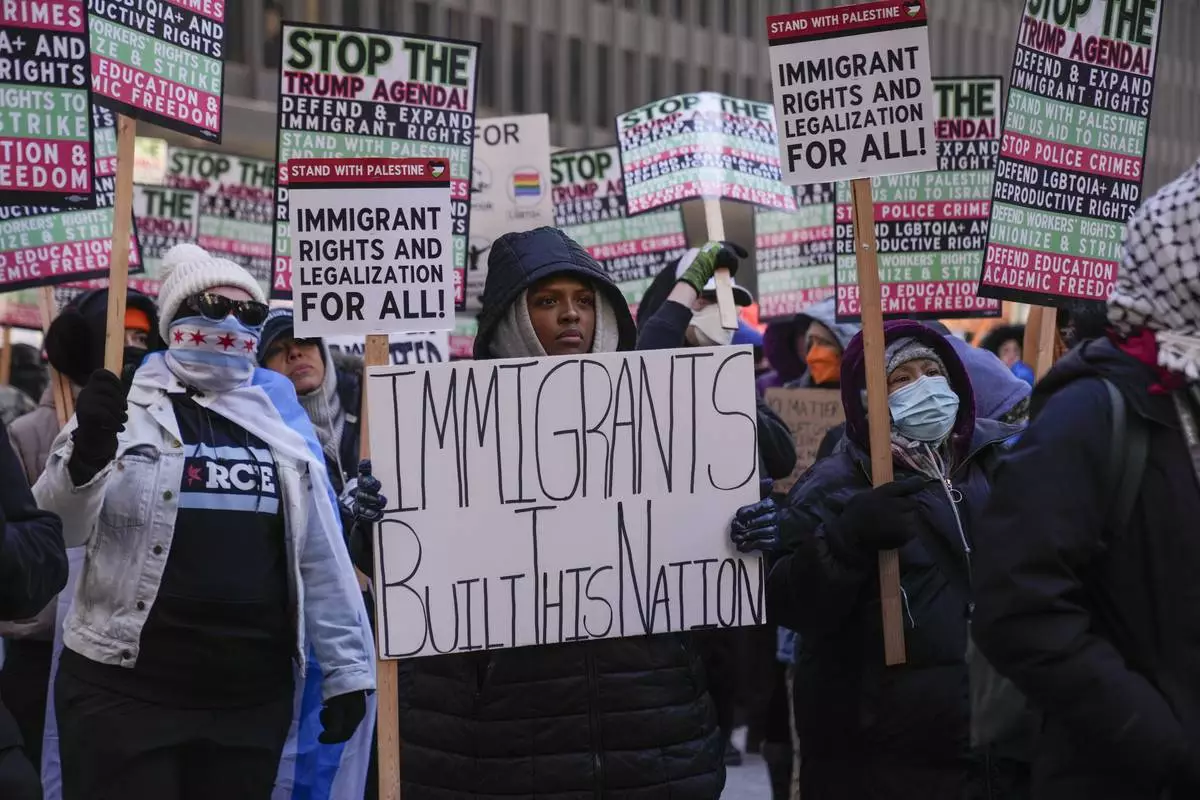
Sonia Rosa Sifore and other anti-Trump protesters gather in Federal Plaza to rally for a number of issues, including immigrant rights, the Israel-Hamas war, women's reproductive rights, racial equality and others, on the day of President Trump's Inauguration, Monday, Jan. 20, 2025, in Chicago. (AP Photo/Erin Hooley)
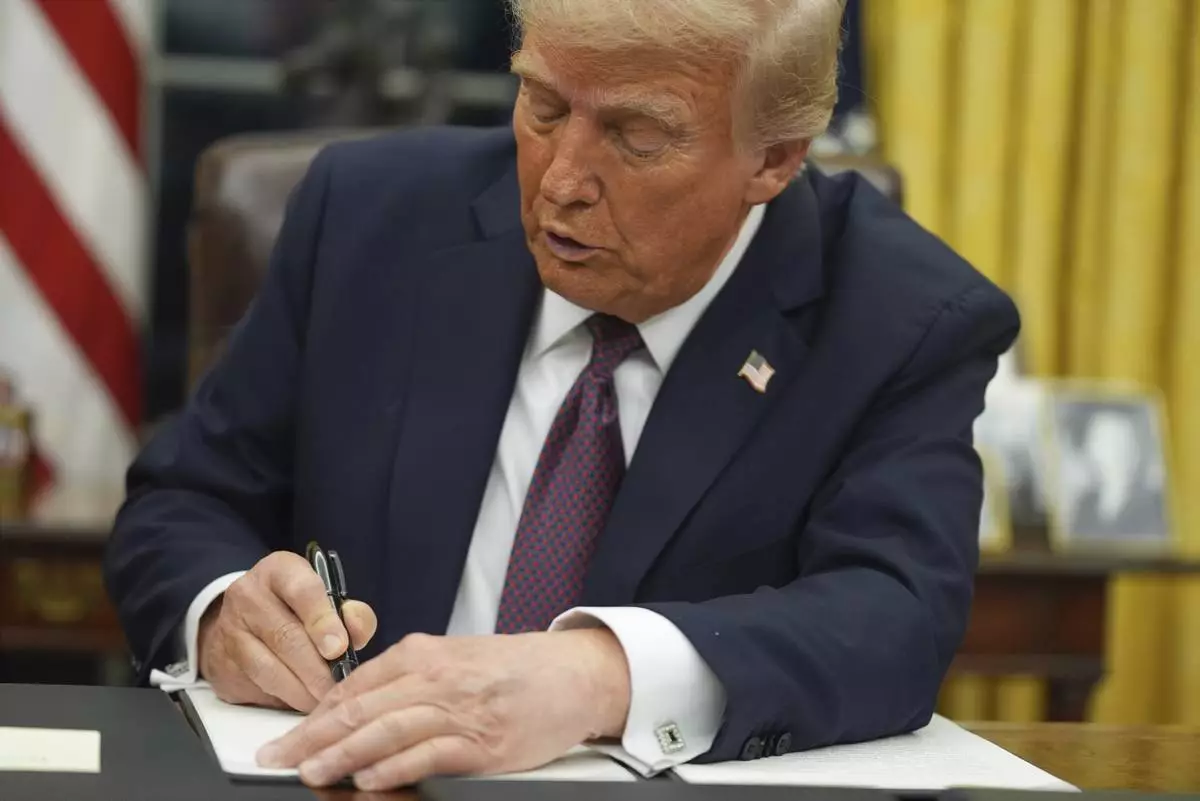
President Donald Trump signs an executive order on birthright citizenship in the Oval Office of the White House, Monday, Jan. 20, 2025, in Washington. (AP Photo/Evan Vucci)



